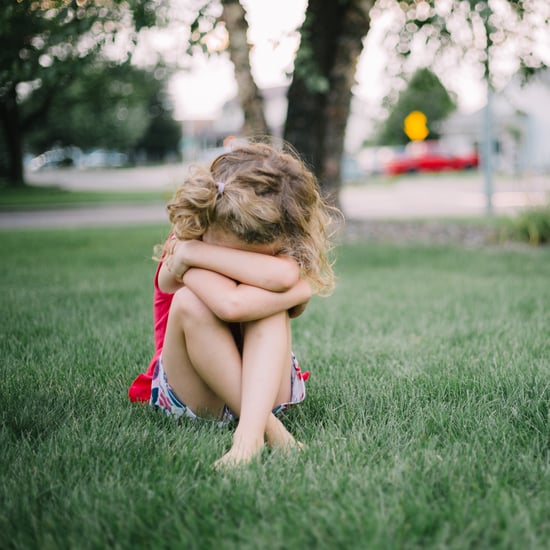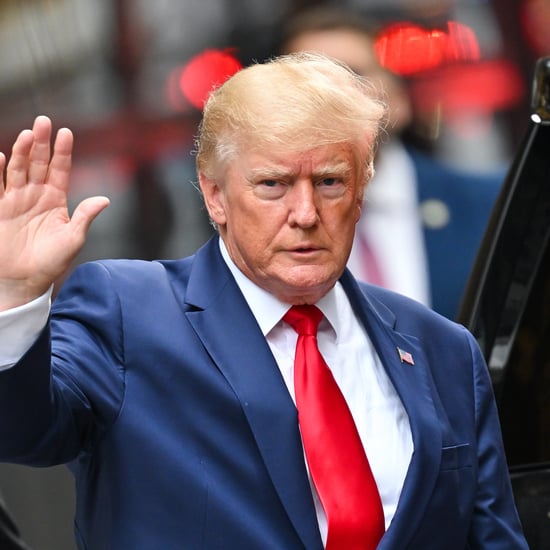Parkland Survivors Mei-Ling Ho-Shing, Tyah-Amoy Interview
3 Months After Parkland, Survivors Say, "It's Never Going to Be the 'New Normal'"
Seventeen-year-old classmates Mei-Ling Ho-Shing and Tyah-Amoy Roberts stepped onto the national stage in February following the devastating shooting on their campus at Marjory Stoneman Douglas High School in Parkland, FL. On May 5, the high school juniors joined forces with fellow teen activist Journey Jamison to speak out against gun violence at the United State of Women summit in LA.
Jamison, 16, has also witnessed the trauma of gun violence up close. Last year, she saved a man's life when he burst into her Chicago home bleeding, suffering from a gunshot wound. Now, she and her mother are making sure other members of the community are empowered and educated in first aid through a program called UMedics so that they, too, can save a life if need be.

From left: Journey Jamison, Mei-Ling Ho-Shing, Tyah-Amoy Roberts, Amber Goodwin of the Community Justice Reform Coalition, and Moms Demand Action founder Shannon Watts on stage at United State of Women. Photo courtesy Kristina Dixon.
After the trio took the stage, Ho-Shing and Roberts told POPSUGAR that they — and their communities — have been forever changed by the violence.
"People like to use the term 'new normal,' but that's not a thing. There's still going to be that empty seat that sits next to you."
"There's no such thing as normal anymore. People like to use the term 'new normal,' but that's not a thing," Ho-Shing said. "There's still going to be that empty seat that sits next to you. There are still barricades in our school. When we came back, the [guards] had rifles in their hands, but now they put them in their bags behind them. We have clear backpacks. It's never going to be the same. It's never going to be the 'new normal.'"
Ho-Shing also said she's concerned about how students of colour will be negatively impacted by some of the tighter security measures in schools like her own. "I take passion in security. Security throughout schools, but not militarizing them. When you start militarizing schools, it starts impacting the black and brown communities in schools, because you're treating them like prisoners," she said. "What I do believe in? I believe in gates. Just like a lock saved my life because the shooter couldn't get inside my room."
For many students, academics have been a welcome distraction. "I think a part of the healing process has been getting back into it," Roberts said. "Because once you're in your schoolwork, and you're learning, or working on a worksheet, or taking a test, even though that's stressful, it takes your mind even farther, for a millisecond, from what's happened."
Yes, Gun Safety Is a Women's Issue
United State of Women was an ambitious summit that set out to address topics from immigration reform to gender discrimination in the workplace to gun reform. As the three teens noted, gun safety was a fitting issue to be discussed at a conference about issues that matter to women.
"What does a United State of Women mean to me?" Roberts asked as she took the stage. "It looks like women and girls all across this country feeling safe in their homes. It looks like mothers sending their kids off to school and knowing they will come back that afternoon."
"Women historically always step to the front lines."
Jamison said it shouldn't be a surprise that young women like them are leading the charge.
"Women historically always step to the front lines, because we understand the importance, and we understand that it's our future children that we're going to be looking out for, and we take pride in that," Jamison said. "That's why gun violence is a women's issue, but it's an everybody issue."
The three young women said they're hopeful, but realistic, about the pace of change.
"My hope is that there will be a point in time, maybe it will be long after I have kids — hopefully it happens before I retire — that I don't have to worry about sending my brother or my sister or my kids, in the future, off to school," Roberts said. "I want it to be a conversation that does not have to happen anymore."
Ho-Shing also pointed out the particular impact of gun violence in the black community.
"When it comes to black people, we have these conversations with our parents. Your son can't go outside in a hoodie, because this will happen. And we've normalized it, like, 'This is how it is.' You have to be careful when driving. You can't argue with an officer," Ho-Shing said. "But we shouldn't be scared to be shot. That shouldn't be normal anymore. I don't want my grandkids to think it's normal to walk outside and it's a high rate for them to get shot."
Jamison agreed. Growing up in Chicago, she said, gun violence was a constant threat and fact of life. "I don't want any kid to think that's just bound to happen," she said.
Part of Jamison's activist work is with an organisation called Sacred Keepers that aims to educate young generations to break cycles of violence. "Antiviolence is a lifestyle that you have to live," she said. "You have to walk the talk, and it's holistic."
Future — and Current — Leaders of America
While all three young women are already accomplished activists, they have their eyes on major future goals.
"It's all about infiltrating this corrupt system, and I think the end game for me is to have a government that reflects its people so that there's equal representation in these offices," Jamison said. "I'm interested in running for office. I know that a lot of people agree with me and a lot of people believe in women's rights and gun violence reform, and I think that idea, and that opinion, and that belief needs to be pushed harder. And that is the way to do it."


